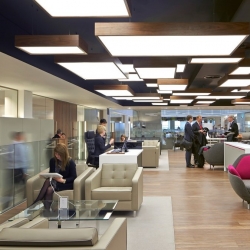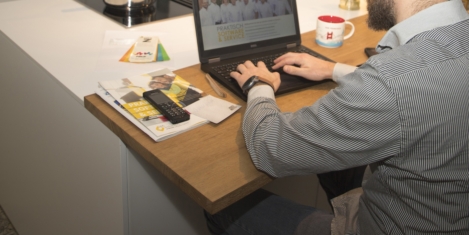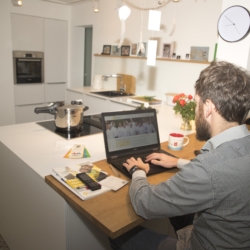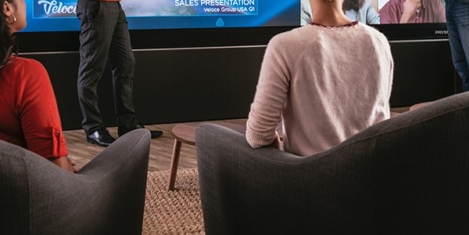To provide the best experiences, we use technologies like cookies to store and/or access device information. Consenting to these technologies will allow us to process data such as browsing behaviour or unique IDs on this site. Not consenting or withdrawing consent, may adversely affect certain features and functions.
The technical storage or access is strictly necessary for the legitimate purpose of enabling the use of a specific service explicitly requested by the subscriber or user, or for the sole purpose of carrying out the transmission of a communication over an electronic communications network.
The technical storage or access is necessary for the legitimate purpose of storing preferences that are not requested by the subscriber or user.
The technical storage or access that is used exclusively for statistical purposes.
The technical storage or access that is used exclusively for anonymous statistical purposes. Without a subpoena, voluntary compliance on the part of your Internet Service Provider, or additional records from a third party, information stored or retrieved for this purpose alone cannot usually be used to identify you.
The technical storage or access is required to create user profiles to send advertising, or to track the user on a website or across several websites for similar marketing purposes.
 The COVID-19 pandemic has led to a surge in digital learning with seven in ten organisations (70 percent) reporting an increase in use of digital or online solutions over the last year, according to the latest Learning and Skills at Work report from the CIPD and Accenture. More than a third of organisations (36 percent) have also increased their investment in learning technology in the last year. (more…)
The COVID-19 pandemic has led to a surge in digital learning with seven in ten organisations (70 percent) reporting an increase in use of digital or online solutions over the last year, according to the latest Learning and Skills at Work report from the CIPD and Accenture. More than a third of organisations (36 percent) have also increased their investment in learning technology in the last year. (more…)






 Jooxter has announced the expansion of its operations into the UK and Ireland.
Jooxter has announced the expansion of its operations into the UK and Ireland. 
 According to new data from
According to new data from 
 According to proprietary research by
According to proprietary research by 
 The COVID-19 pandemic has accelerated the transition away from traditional workforce models, and 56 percent of companies are expecting to shift more of their roles to contingent, project or contract work as a result, according to a new report by
The COVID-19 pandemic has accelerated the transition away from traditional workforce models, and 56 percent of companies are expecting to shift more of their roles to contingent, project or contract work as a result, according to a new report by 
 A report published by single parent charity,
A report published by single parent charity, 
 A shift to remote working in the pandemic has made starting a new job even more challenging and the Government must recognise the vital role managers have to play as it works to ensure the success of its £2.6 billion job drive.
A shift to remote working in the pandemic has made starting a new job even more challenging and the Government must recognise the vital role managers have to play as it works to ensure the success of its £2.6 billion job drive. 
 The workspace innovator
The workspace innovator 
 Long working hours led to 745,000 deaths from stroke and ischemic heart disease in 2016, a 29 per cent increase since 2000, according to the latest estimates by the World Health Organization and the International Labour Organization published in
Long working hours led to 745,000 deaths from stroke and ischemic heart disease in 2016, a 29 per cent increase since 2000, according to the latest estimates by the World Health Organization and the International Labour Organization published in 
 UK employers are the most optimistic about hiring in eight years, according to the latest
UK employers are the most optimistic about hiring in eight years, according to the latest 
 Tens of thousands of restaurant, hotel, event and leisure jobs are available as England moves to the next step on the roadmap out of lockdown on Monday 17th May, but jobseeker shortages are making these jobs hard to fill, according to new research from global job search engine
Tens of thousands of restaurant, hotel, event and leisure jobs are available as England moves to the next step on the roadmap out of lockdown on Monday 17th May, but jobseeker shortages are making these jobs hard to fill, according to new research from global job search engine 
 A new report launched by the
A new report launched by the 






